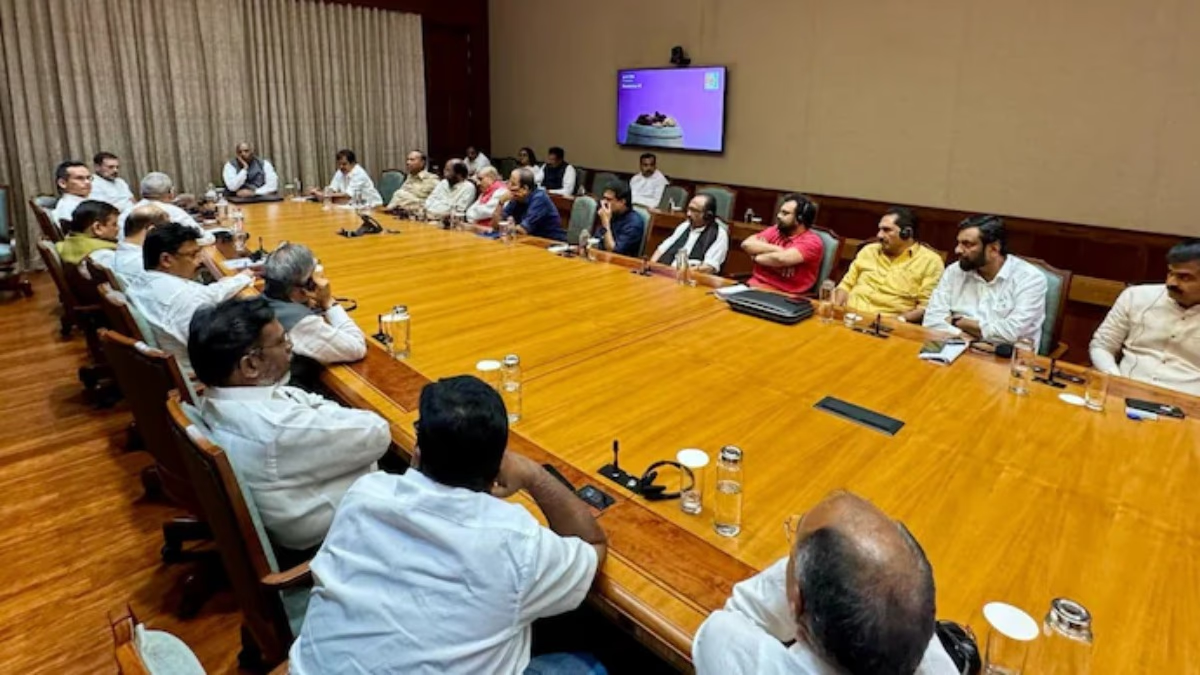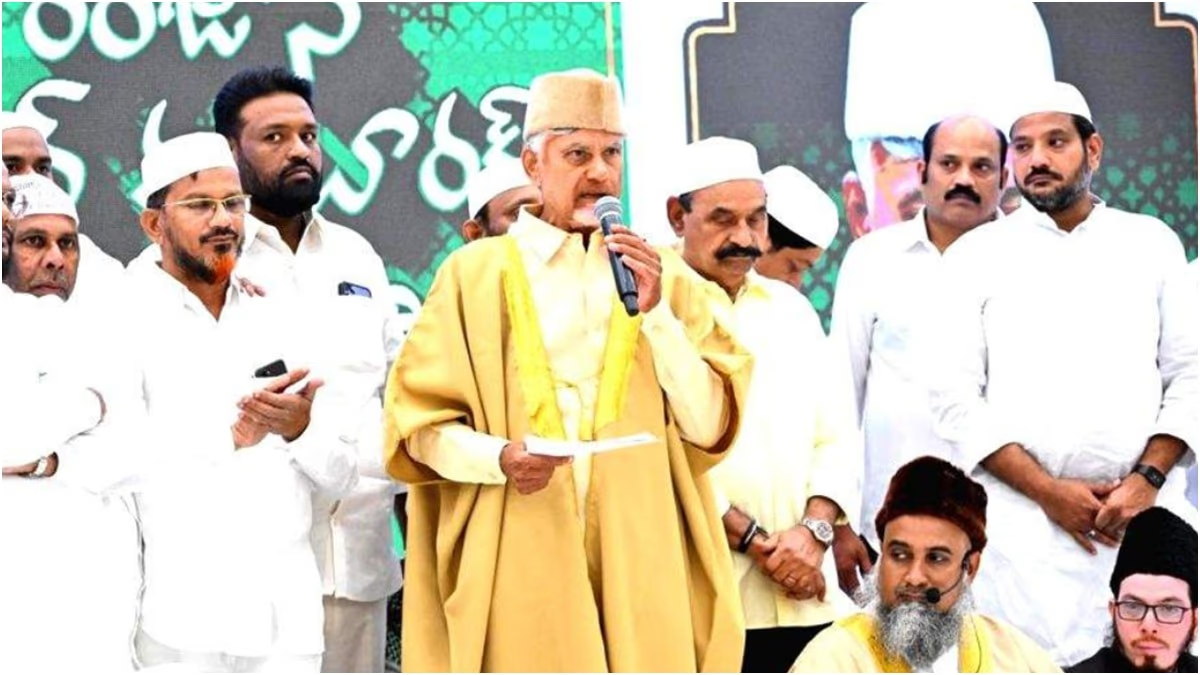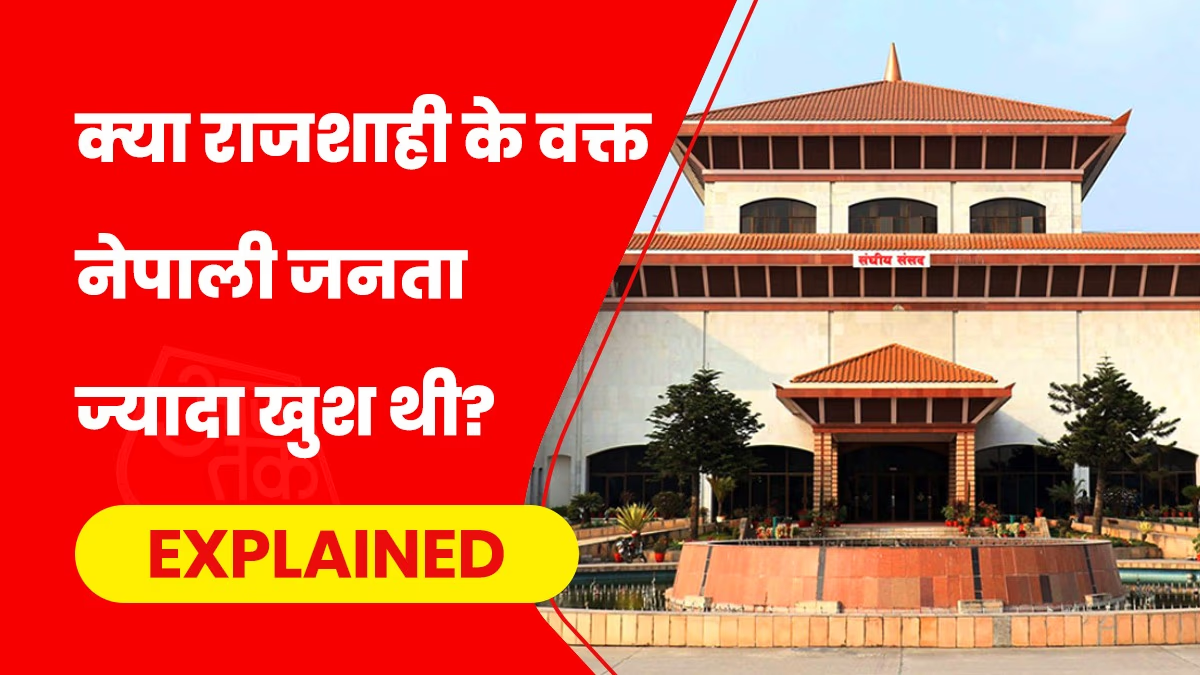Today, the central Modi government is set to present the Waqf Amendment Bill in the Lok Sabha. The Minister for Minority Affairs, Kiren Rijiju, will introduce it. The government has secured support from NDA allies including Nitish Kumar, Chandrababu Naidu, Chirag Paswan, and Jayant Chaudhary's parties. The opposition stands united against this proposed law.
Opposition Unites Against Waqf Amendment Bill
A crucial meeting of opposition parties took place on Tuesday to strategize and ensure a challenge to the bill scheduled for discussion and passage in the Lok Sabha on Wednesday. Opposition leaders criticized the government's policies and the proposed bill, stating it promotes division among communities.
Opposition parties like Congress, Shiv Sena (UBT), AIMIM, and CPI (M) have strongly criticized the bill, arguing it discriminates against Muslims and infringes on religious freedoms. AIMIM leader Asaduddin Owaisi termed it the 'Waqf Destruction Bill.' He stated, 'The objective is to weaken Waqf laws and facilitate the usurping of Waqf properties.'
What Did Congress President Mallikarjun Kharge Say?
Congress President Mallikarjun Kharge expressed that opposition parties will collectively address the unconstitutional and divisive agenda of the Modi government on the parliamentary floor. The meeting aimed to showcase their unity in defending the nation's secular and democratic values.
What is the Government's Position?
The government has the numbers in the Lok Sabha to pass this bill. The NDA government has 293 MPs, surpassing the 272 needed for a majority. Minister Kiren Rijiju criticized opposition claims as misleading, asserting that Waqf laws have existed since before independence with the intent to improve transparency and accountability in Waqf administration.
BJP and Congress Issue Whips
Parties including BJP, Congress, and TDP have issued whips for their members to be present during the debate and voting process on the Waqf Amendment Bill on Wednesday. It will be pivotal to observe the ensuing discussions between the government and the opposition and their outcomes.
What Changes Does Modi Government Wish to Make to Waqf?
The central government intends to make significant changes to the Waqf property law. The new law will halt the transfer of property to Waqf upon conversion to another religion, include women and non-Muslims in the Waqf board, maintain online records of Waqf properties, and allow government audits. Some perceive it as against religion, while the government argues it's a necessary reform, igniting discussions on secularism's new definition and societal change.
Has the Waqf Law Been Amended Before?
The bill has undergone amendments previously. Changes were made in 1995 and later in 2013. Notably, these revised bills were passed unanimously during Congress-led governments, including ally support, without opposition from any party, including the BJP. Currently, the BJP is advocating further amendments.
Political Drama Over Waqf Bill in Maharashtra
Before the Waqf Amendment Bill's introduction in the Lok Sabha, political drama in Maharashtra has intensified. Shiv Sena has decided to support the bill while the opposition resists it. Chief Minister Devendra Fadnavis has aimed a dig at Uddhav Thackeray, questioning whether he will follow Balasaheb's ideology or tread Rahu
Some events occurred
Single sentence initial details
JPC Remarks on Waqf Bill
Jagdambika Pal, Chairperson of the Joint Parliamentary Committee (JPC), clarified misconceptions in the Muslim community regarding the Waqf Amendment Bill. He emphasized mosques or graveyards would not be seized, highlighting a misunderstanding. The amendment aims to enhance management and transparency of Waqf properties, specifying that the Waqf Board is a government body, not purely religious, and can include non-Muslim officials.
Welfare Initiatives for Muslims by Modi Government
In 2014, as power changed hands to PM Narendra Modi, he conveyed a vision of holistic development, envisioning Muslim youths equipped with both Quran Sharif and computer skills. The Modi government launched numerous schemes directly benefiting the Muslim community. From 2024-25, over 5 lakh Muslim students received scholarships for higher education.
The New Education Policy (NEP) emphasized modernizing madrasas, integrating over 10 lakh Muslim students into mainstream education. Modi government's 'Hunar Haat' initiative employed over 8 lakh Muslim artisans.The Pradhan Mantri Mudra Yojana provided over 30% of loans in 2024-25 to the Muslim community, fostering entrepreneurship and startups. With PM Awas Yojana, more than 10 lakh Muslim families gained housing within a decade. By 2024, under the Jal Jeevan Mission, 90% of Muslim-majority villages received clean piped water.
Under PM Modi's tenure, numerous decisive actions for Muslim children and women included laws against triple talaq, safeguarding women's rights, and allocating over ₹10,000 crore for the 'Beti Bachao Beti Padhao' initiative, promoting higher education for Muslim girls by 2425.




